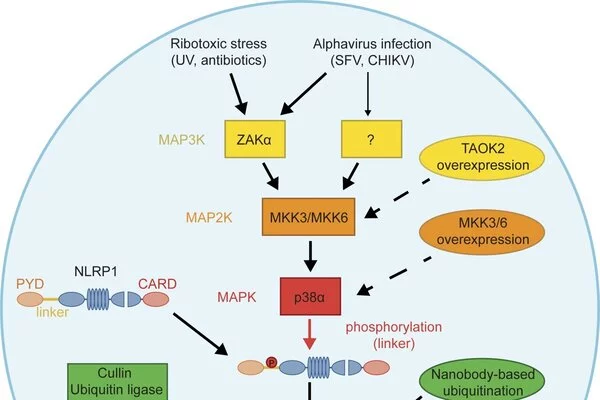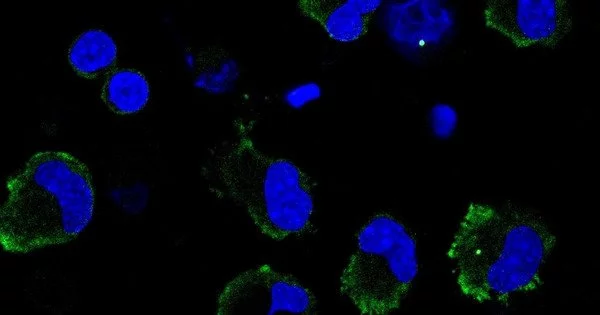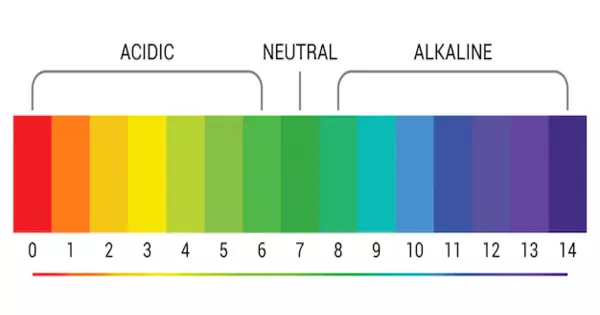Inflammatory skin conditions such as hives, eczema, and psoriasis can be aggravating to live with because they are itchy, red, and unsightly. Learn about the symptoms and how to treat these common ailments. Inflammatory reactions in the skin can reduce UV radiation or infection damage, but they can also cause painful symptoms such as sunburn. A molecular control that integrates these stress signals has now been identified in a recent study.
The skin, as the largest organ in the human body, serves as a major barrier to environmental stimuli and pathogens. If this barrier is breached, as anyone who has ever had a sunburn knows, painful inflammation can ensue. However, the precise mechanism by which this occurs was unknown until now. “In our study, we looked more closely at the processes involved,” says Prof. Dr. Florian Schmidt, who leads a research group at the University Hospital Bonn’s Institute of Innate Immunity.
UV stress triggers signal chain
UV light has a high energy level. When it strikes the skin, it can damage important cellular molecules, causing inflammation as a common result. However, it was unclear how this occurred. “We have now shown that a known cellular stress signaling pathway can trigger these inflammatory responses,” says Schmidt, who is also a member of the University of Bonn’s Transdisciplinary Research Area (TRA) “Life and Health” and the ImmunoSensation2 Cluster of Excellence.
P38 is a molecular information hub in the skin, similar to the fire department’s control center. However, not every incoming call for assistance immediately activates the assembly of inflammasomes; this occurs only when the number and intensity of alerts exceed a certain threshold.
Dr. Florian Schmidt
The cell’s own “engineering offices,” the ribosomes, normally assemble proteins based on the instructions in the genetic material. When this is impaired due to UV damage, they sound the alarm: They trigger the so-called ribotoxic stress response. It has been known for years that this causes a signaling cascade resulting in the activation of an enzyme called p38. “Our research shows that p38 molecularly modifies NLRP1, a critical switch for inflammation in the skin, and thus activates it in a novel way. This initiates the assembly of inflammasomes from many molecular building blocks.”
Inflammasomes are powerful weapons of the innate immune system. Among other things, these complex molecular machines can convert inactive messenger substances for inflammation into their active form. At the same time, they ensure that numerous holes are formed in the cell membrane. This allows messenger substances to reach the outside and thus call the body’s own defense forces to its aid. Ultimately, the holes lead to the death of the cell: At some point, it practically explodes and empties its contents into the tissue. The molecules that are now abruptly released from within the cell are another warning sign for the immune system.

Viruses also activate p38
Surprisingly, excessive sunbathing does not only activate p38. “We were able to show that mosquito-borne viruses can also activate NLRP1 via p38,” says Lea-Marie Jenster, a PhD student in the Schmidt lab and the study’s lead author. “These include, for example, the chikungunya virus, which is a major problem in parts of Africa and Asia and could spread to Germany as a result of climate change.” Viruses may also activate p38 via multiple pathways.
“P38 is a molecular information hub in the skin, similar to the fire department’s control center,” Schmidt explains. “However, not every incoming call for assistance immediately activates the assembly of inflammasomes; this occurs only when the number and intensity of alerts exceed a certain threshold.” This regulation is critical because inflammasomes are dangerous weapons that cause significant collateral damage. For example, the severe inflammation that is triggered causes skin tissue to die.
However, inflammasomes are not always tightly controlled, as in the case of sunburn or some autoimmune diseases. Perhaps p38 opens up a new avenue for specifically suppressing such exuberant immune responses in the skin.
















